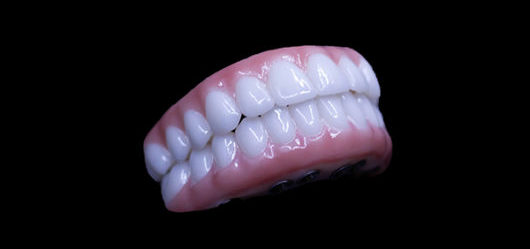Little Known Questions About Dental Sense.
Little Known Questions About Dental Sense.
Blog Article
Dental Sense Things To Know Before You Buy
Table of ContentsThe Definitive Guide for Dental SenseHow Dental Sense can Save You Time, Stress, and Money.Dental Sense for BeginnersThe Definitive Guide for Dental Sense
are clinical devices surgically dental implanted into the jaw to restore a person's capability to chew or their look. They supply support for man-made (phony) teeth, such as crowns, bridges, or dentures. When a tooth is lost as a result of injury or disease, an individual can experience difficulties such as rapid bone loss, faulty speech, or adjustments to eating patterns that cause pain.Oral dental implant systems consist of an oral implant body and oral implant abutment and may also include a joint addiction screw. Kids dental. The dental implant body is surgically put in the jawbone in area of the tooth's root. The oral implant joint is usually connected to the implant body by the abutment fixation screw and prolongs with gum tissues into the mouth to support the attached man-made teeth
(https://sitereport.netcraft.com/?url=https://nearme.vip)Structure of The Dental Implant System choosing oral implants, speak with your dental supplier regarding the potential benefits and threats, and whether you are a candidate for the treatment. Things to take into consideration: Your overall wellness is a crucial consider establishing whether you are a great prospect for oral implants, for how long it will certainly require to heal, and how much time the dental implant might remain in location.
Smoking cigarettes may influence the healing procedure and lower the lasting success of the implant. The healing procedure for the dental implant body might take several months or longer, throughout which time you commonly have a momentary joint instead of the tooth. the dental implant treatment: Meticulously adhere to the oral hygiene guidelines provided to you by your dental service provider.
Top Guidelines Of Dental Sense
Implant failing can result in the requirement for an additional procedure to repair or change the dental implant system. Recovers the ability to eat Recovers cosmetic appearance Helps keep the jawbone from reducing as a result of bone loss Maintains the wellness of the surrounding bone and periodontals Aids keep nearby (close-by) teeth steady Enhances lifestyle Damage to surrounding natural teeth throughout dental implant positioning Injury to the surrounding cells throughout surgical procedure, such as sinus opening Injury during surgical treatment (for example, crack of surrounding jawbone) Inadequate feature, such as seeming like the teeth do not bite with each other normally An experience that the tooth is loosened or twisting in location resulting from a joint screw loosening Implant body failing (looseness of the dental implant body) due to systemic infection, which might be more most likely in people with unrestrained diabetes because of neighborhood infection in bone and periodontals sustaining the implant body as a result of delayed recovery, which may be most likely in people that smoke Trouble cleansing the periodontals around the implant, causing poor oral health Neglected gum condition Post-surgical pins and needles due to nerve impingement or damages Constantly notify healthcare service providers and imaging professionals that you have oral implants prior to any magnetic resonance imaging (MRI) or x-ray procedures.
FDA is not familiar with any damaging events reported for MRI or x-ray treatments with oral implants. Dental implants systems are commonly made of materials that adhere to global agreement requirements of the International Company for Standardization (ISO) or ASTM International. These requirements have information of what makes a secure product.

An oral implant is a structure that replaces a missing out on tooth. With screw-like devices, the doctor inserts an implant right into the jawbone, and it acts as an anchor for an artificial tooth, called a crown. A tool called an abutment attaches the fabricated tooth to the dental implant. The crown is tailor-made to fit the person's mouth and match the color of their teeth.
The 7-Minute Rule for Dental Sense
Some individuals are not qualified for dental implant surgical treatment. It is for dental cosmetic surgeons to operate people with: intense illnessuncontrollable metabolic diseasebone or soft cells condition or infectionIf these concerns are resolved, a person can have the surgical procedure. In, oral surgeons avoid running on individuals with: If people with any of the above go through dental top article implant surgery, there is a greater risk of the implant falling short.

Dental implant surgery is a tailored process. Provide you time to recover. Connect the message and last crown, bridge or denture.
Next off, your cosmetic surgeon will meticulously put the oral implant into your jaw. Lastly, your surgeon will rearrange your gum tissues and close the incision with stitches. If your implant is near the front of your mouth, your dentist will make a momentary tooth for you to wear up until you recover. In this way, you won't have a void in your smile while you recuperate.
The Ultimate Guide To Dental Sense
Throughout the recovery phase, your jawbone should fuse to the dental implant. This procedure can take anywhere from 3 to 9 months.
When your dental implant heals, your dental practitioner can affix the joint (little adapter message) and your last restoration (crown, bridge or denture). This usually takes concerning one hour to finish and might need a 2nd small surgical treatment. You shouldn't really feel any type of discomfort during your oral implant treatment due to the fact that your provider will certainly utilize medicine to numb your periodontals.
Report this page